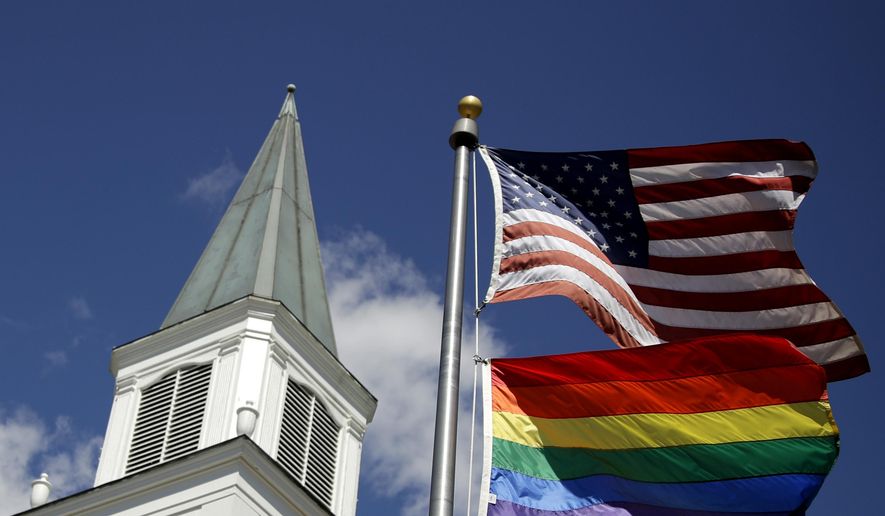Thirty-eight United Methodist Church congregations in Maryland and West Virginia have sued the Baltimore-Washington Conference and its leader, Bishop LaTrelle Easterling, claiming the regional body is extorting a “financial ransom” of half their church property value as they seek to leave the denomination.
At issue are demands by the conference — the equivalent of a diocese in other denominations — that the churches pay “unfunded pension liabilities” in addition to the property-value payment.
The demands come as Methodist churches seek to depart under a provision expiring this year that ostensibly makes such separations easier.
According to the court filing, while conference trustees said the 50% payment was “fair and gracious,” the churches said the trustees “provided no rationale” for the figure and refused to justify it beyond that claim of graciousness.
The complaint alleges that the United Methodist Church pension arm, Wespath Benefits and Investments, “has more than $29 billion in assets,” which the churches say is “more than sufficient” to handle ensuing decades of pension liabilities. They also say the churches have paid annual “apportionments” to the Baltimore-Washington Conference “for decades,” providing “millions of dollars” to the group.
The churches also assert that other provisions in the United Methodist’s rule book called “The Book of Discipline” allow congregations to disaffiliate without egregious penalties and to retain their property, which the suit says they had purchased years earlier. They claim the conference and trustees have repeatedly tried to thwart such provisions.
The filing claims that if the congregations do not exit under the conference-specified rules by the end of 2023, they will be “barred” from leaving “despite the fact that they no longer share the UMC’s religious beliefs.”
In seeking judicial intervention, the plaintiffs say the Baltimore-Washington Conference — headquartered in Fulton, Maryland — violates their rights to religious free exercise under the Maryland state laws governing corporations and associations.
The 38 churches are among hundreds of United Methodist congregations across the country that have left the denomination or are seeking an exit over issues involving the role of LGBTQ+ individuals in the church.
Some Methodists want to ordain LGBTQ+ people as pastors and bless same-sex marriages, while others wish to retain traditional church discipline prohibiting such practices.
Attorneys representing the churches filed the civil complaint in Anne Arundel County Circuit Court last Monday, and requested a jury trial.
David Gibbs, president and general counsel of the National Center for Life and Liberty, said in an interview the venue was selected because several of the congregations are in the county and courts there handle cases efficiently. He expects an initial hearing within 60 to 90 days.
“These are churches that have paid for their property once [and] now they’re being asked to pay for them again,” Mr. Gibbs said in a telephone interview. “The conference is extracting what some would call a buyout. Others would call it a ransom to leave.”
Mark D. Tooley, a longtime Methodist who is president of the Institute on Religion and Democracy, said Ms. Easterling and the conference “unlike virtually the entire rest of United Methodism in the United States, has made it almost impossible for churches in its jurisdiction of Washington, D.C.; Maryland and parts of West Virginia to exit the denomination.”
He said sustaining these policies “will effectively kill much of Methodism in [Ms. Easterling’s] region, keeping empty properties that ultimately will be sold to the benefit of the bishop’s office while losing people.”
“It’s absurd that exiting churches must litigate simply to keep their own properties and practice traditional Methodism,” Mr. Tooley said.
The Baltimore-Washington Conference did not respond to several requests for comment.
On March 1, conference spokeswoman Melissa Lauber announced they would not replace the Rev. Gerry Green, who supervises 65 congregations in the group’s Greater Washington District, in part because of the looming congregational exits. Instead, superintendents of adjoining districts will pick up responsibilities for the churches.
Bishop Thomas Bickerton, president of the UMC’s Council of Bishops, said Thursday that the lawsuit is a local matter and he could not comment.
In an earlier interview, Mr. Bickerton told The Washington Times that under the departure provision expiring this year, local “conferences have the right to add additional requirements as they see fit.”
• Mark A. Kellner can be reached at mkellner@washingtontimes.com.




Please read our comment policy before commenting.